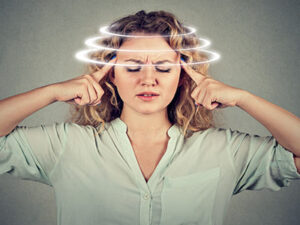The ent specialist for vertigo who deals with ear pathology, both medical and surgical, cannot fail to deal with the complex aspects of vertigo. His task is not only to diagnose the pathology of the labyrinth or to exclude it but also, in the latter case, to give the patient some answers on the causes and possible remedies for his symptoms.
Who suffers from vertigo, and how does it manifest itself?
The attending physician or other specialists classify Vertigo as cervical symptoms or labyrinthitis. In reality, the “cervical” does not determine vertigo, and labyrinthitis is a generic term that indicates a pathology of the labyrinth without a precise diagnosis, a term that the otorine never uses.
What does dizziness depend on?
The causes of dizziness are many. True vertigo is a more or less intense sensation of rotation that can be subjective. It is the patient who has the sensation of spinning or objective. The patient sees the objects around him that spin more or less quickly. Other symptoms, such as nausea, vomiting, and sweating, are associated with a more intense spinning sensation. The loss of consciousness cannot be a symptom determined by pathology of the labyrinth but always by a different pathology.
Subjective vertigo is usually neurological vertigo (but not always), while the objective one originates from the labyrinth and therefore is the responsibility of the otolaryngologist. Numerous balance disturbances can have a cardiac, vascular cause, posture alterations, or psychological vertigo, such as panic attacks that have nothing to do with the ear.
The most frequent vertiginous ear pathology is positional vertigo which usually appears in bed and is determined by a displacement of otoliths (microscopic stones) inside the labyrinth and can be recurrent.
How vertigo is treated: Medication therapy, rehabilitation, surgery
Many vertiginous episodes resolve spontaneously, leading the non-specialist doctor to think that his (cervical) diagnosis or treatment is correct. The real problem is not the therapy of the single attack but the diagnosis and the adoption of the appropriate remedies to solve the pathology and avoid the recurrence of dizziness that make the patient’s life difficult and determine the appearance of a reactive, anxious state for fear of not being able to have a normal life anymore.
Vertigo: associated symptoms
dizziness is accompanied by nausea, vomiting, loss of balance, sensitivity to noise and light, tinnitus (tinnitus), i.e. ringing in the ears, headache, weakness, tiredness, shortness of breath, sweating, hearing loss, double vision, difficulty speaking or swallowing. Depending on the underlying cause, these symptoms associated with vertigo can be mild or severe.
Vertigo: when it is important to consult a specialist
It is essential to undergo a neurological examination when dizziness occurs recurrently and persistently, with severe associated symptoms. After the anamnesis (deepening of the patient’s clinical history), the neurologist vertigo treatment will evaluate the symptoms and subject the subject to strength, sensitivity, balance and reflexes tests.
Based on the outcome of the visit, the ENT Specialist for Vertigo Near Me will prescribe diagnostic tests based on the problems encountered (MRI, CT scan, ECG, digital blood glucose, audiometric tests, posturographic examination) to discover the triggering cause of the disorder and choose the most appropriate therapy.
Vertigo: treatments for vestibular disorders
If the cause concerns a vestibular disorder, the most effective conservative therapy involves taking diazepam-based drugs or oral antihistamines/anticholinergics such as meclizine which can cause drowsiness. Nausea can be treated with prochlorperazine. When the triggering cause is BPPV (benign paroxysmal positional vertigo), the Epley manoeuvre (repositioning of the otoliths) is performed by an experienced professional.
For dizziness caused by vestibular neuritis, vestibular rehabilitation therapy is performed by a qualified vertigo specialist near me.
Vertigo in older people
Dizziness is particularly common in older people for various reasons. With ageing, the balance organs are prone to dysfunction. Vision worsens along with proprioception, and the inner ear structures degenerate. In addition, it is easier to find heart or cerebrovascular diseases in elderly people that cause dizziness.
Older people often take drugs for hypertension, anxiety, heart failure, angina, antihistamines, and antibiotics – all drugs that can cause dizziness. Consequently, this disorder in the elderly can result from more than one cause, and it is important to make an accurate diagnosis.
In old age, dizziness is not only an unpleasant but dangerous disorder: the elderly risk falls with consequent fractures or, for fear of moving, are forced to limit their daily activities. In addition to the most suitable treatment based on the diagnosed causes, physiotherapy and therapeutic exercises to strengthen the muscles help the elderly to maintain an autonomous gait for longer.
More generally, physiotherapy is the treatment of choice at any age, when the neck, postural deficits, anxiety and stress, vagus nerve or eye muscle disorder, reduced microcirculation, metabolism problems and even improper chewing.


